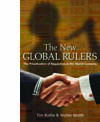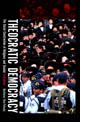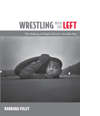On the shelf
The Magazine publishes a selection of general-interest books by alumni authors. For additional alumni books, see "In Their Own Words" at magazine.uchicago.edu/books.
 The New Global Rulers: The Privatization of Regulation in the World Economy, by Tim Büthe and Walter Mattli, PhD’94, Princeton University Press, 2011. Regulating products and services that span the globe is a complicated and technical job. Over the past 20 years, private global organizations such as the International Accounting Standards Board, the International Organization for Standardization, and the International Electrotechnical Commission have taken on the task from national governments. But this shift has made creating and implementing regulatory standards a contentious, secretive, and intensely political process, which the authors uncover and explain. The New Global Rulers analyzes such organizations and explores international standard-setting.
The New Global Rulers: The Privatization of Regulation in the World Economy, by Tim Büthe and Walter Mattli, PhD’94, Princeton University Press, 2011. Regulating products and services that span the globe is a complicated and technical job. Over the past 20 years, private global organizations such as the International Accounting Standards Board, the International Organization for Standardization, and the International Electrotechnical Commission have taken on the task from national governments. But this shift has made creating and implementing regulatory standards a contentious, secretive, and intensely political process, which the authors uncover and explain. The New Global Rulers analyzes such organizations and explores international standard-setting.
 Theocratic Democracy: The Social Construction of Religious and Secular Extremism, by Nachman Ben-Yehuda, AM’76, PhD’77, Oxford University Press, 2010. The tension between Israel’s ultra-orthodox Haredi and secular Jews has existed since the state’s founding in 1948, and the religious and cultural tension has continuously spilled over into national politics. Ben-Yehuda examines 50 years of verbal and nonverbal violence, from intimidation to arson, as the Haredi push for a more theocratic state.
Theocratic Democracy: The Social Construction of Religious and Secular Extremism, by Nachman Ben-Yehuda, AM’76, PhD’77, Oxford University Press, 2010. The tension between Israel’s ultra-orthodox Haredi and secular Jews has existed since the state’s founding in 1948, and the religious and cultural tension has continuously spilled over into national politics. Ben-Yehuda examines 50 years of verbal and nonverbal violence, from intimidation to arson, as the Haredi push for a more theocratic state.
 Twelfth Night: New Critical Essays, edited by James Schiffer, AM’74, PhD’80, Routledge, 2010. This collection examines Shakespeare’s classic comedy about mistaken identity through several critical lenses, exploring themes of sexuality, madness, and social mobility. Schiffer’s introduction includes a history of the play’s performances and critical reception.
Twelfth Night: New Critical Essays, edited by James Schiffer, AM’74, PhD’80, Routledge, 2010. This collection examines Shakespeare’s classic comedy about mistaken identity through several critical lenses, exploring themes of sexuality, madness, and social mobility. Schiffer’s introduction includes a history of the play’s performances and critical reception.
Spiritual Economies: Islam, Globalization, and the Afterlife of Development, by Daromir Rudnyckyj, AB’94, Cornell University Press, 2010. Challenging the assertion that Islam is incompatible with Westernized globalization, Spiritual Economics explores a religious frontier in Southeast Asia, where moderate Muslim leaders are reinventing Islam as a model for business success. Based on two years of research at a steel corporation in Indonesia, Rudnyckyj explains a program called Emotional and Spiritual Quotient (ESQ), which reframes Muhammad as a kind of corporate leader and applies Islamic principles to exemplars of Western modernity, such as science and capitalism.
Saving Women’s Hearts: How You Can Prevent and Reverse Heart Disease with Natural and Conventional Strategies, by Martha Gulati, SM’02, and Sherry Torkos, Wiley, 2011. The number one killer of women in North America is heart disease. In Saving Women’s Hearts Gulati and Torkos examine the roles that stress, sleep, family medical history, and exercise play in cardiovascular health, offering tips about preventative dietary supplements, diet, and exercise.
 Wrestling with the Left: The Making of Ralph Ellison’s Invisible Man, by Barbara Foley, AM’71, PhD’76, Duke University Press, 2010. Foley explores the evolution of Ellison’s once-radical political beliefs over the course of writing Invisible Man. When he began the novel in 1945, Ellison had already cut many close ties with American communists. Using thousands of pages of Ellison’s drafts, notes, journalism, and fiction, Foley argues that the writer’s leftist sympathies, and then his fight to cleanse the book of these views, heavily influenced the novel’s eight-year creation. Had Cold War pressures not pushed Ellison to revise his book, Foley argues, a more revolutionary text would have resulted.
Wrestling with the Left: The Making of Ralph Ellison’s Invisible Man, by Barbara Foley, AM’71, PhD’76, Duke University Press, 2010. Foley explores the evolution of Ellison’s once-radical political beliefs over the course of writing Invisible Man. When he began the novel in 1945, Ellison had already cut many close ties with American communists. Using thousands of pages of Ellison’s drafts, notes, journalism, and fiction, Foley argues that the writer’s leftist sympathies, and then his fight to cleanse the book of these views, heavily influenced the novel’s eight-year creation. Had Cold War pressures not pushed Ellison to revise his book, Foley argues, a more revolutionary text would have resulted.
 The Fates Will Find Their Way, by Hannah Pittard, AB’01, Ecco, 2011. The Halloween disappearance of 16-year-old Nora Lindell launches Pittard’s first novel, a web of theories and stories about where Nora could be and how she vanished. Told some 30 years after the incident, the novel presents the voices of those she left behind to explore the mystery of Nora’s disappearance. Among the theories: she was abducted, nearly died in a bomb attack in India, or simply walked away. The novel also explains how Nora’s mysterious absence affects her friends and family over the following decades.
The Fates Will Find Their Way, by Hannah Pittard, AB’01, Ecco, 2011. The Halloween disappearance of 16-year-old Nora Lindell launches Pittard’s first novel, a web of theories and stories about where Nora could be and how she vanished. Told some 30 years after the incident, the novel presents the voices of those she left behind to explore the mystery of Nora’s disappearance. Among the theories: she was abducted, nearly died in a bomb attack in India, or simply walked away. The novel also explains how Nora’s mysterious absence affects her friends and family over the following decades.
More Than Good Intentions: How a New Economics is Helping to Solve Global Poverty, by Dean Karlan, MPP’97, MBA’97, and Jacob Appel, Dutton Adult, 2011. Putting development aid programs to the test, Karlan and Appel studied African, Indian, South American, and Filipino villages to determine the most effective ways to invest in the world’s poorest regions. Using behavioral-economics theories and field interviews, the authors argue that, rather than throwing money at a cause, small changes in banking, insurance, and health care can make the most of international aid.
